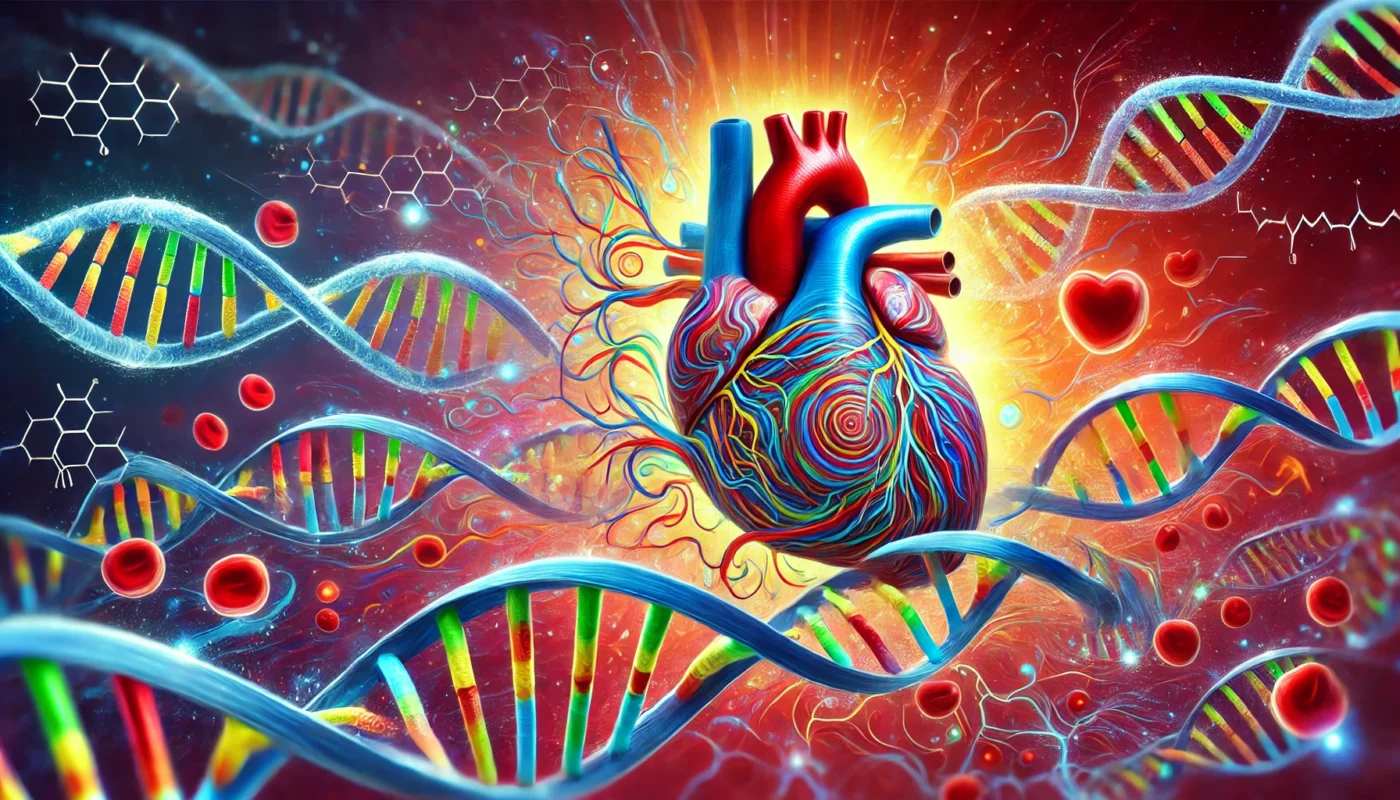Hypertension, or high blood pressure, affects more than 1.28 billion people globally, according to the World Health Organization (WHO). Despite its prevalence, hypertension remains a complex condition influenced by a combination of genetic, environmental, and lifestyle factors. Traditional treatment approaches often rely on generalized strategies, which may not effectively address the unique needs of every individual. Precision medicine, a revolutionary approach to healthcare, offers a pathway to more effective hypertension management. By leveraging advancements in genomics, data analytics, and personalized treatment plans, precision medicine is transforming how hypertension is diagnosed and treated.
This article explores the role of precision medicine in hypertension management, detailing its benefits, mechanisms, and potential to revolutionize care.
You May Also Like: Antioxidants and Hypertension: Are They the Next Big Thing in Treatment?
Understanding Precision Medicine
What Is Precision Medicine?
Precision medicine is a personalized approach to healthcare that considers an individual’s genetic, environmental, and lifestyle factors to develop tailored prevention, diagnosis, and treatment strategies. Unlike the “one-size-fits-all” model, precision medicine aims to deliver interventions that are most likely to benefit each person.
Core Components of Precision Medicine
- Genomic Analysis: Examines an individual’s genetic makeup to identify predispositions to hypertension and responses to medications.
- Data Analytics: Integrates large-scale health data, such as medical records, biomarkers, and lifestyle information, to refine treatment strategies.
- Predictive Modeling: Uses algorithms and artificial intelligence (AI) to predict outcomes and optimize therapeutic interventions.

The Role of Genomics in Hypertension Management
Genetic Influences on Hypertension
Hypertension has a strong genetic component, with studies estimating that up to 50% of blood pressure variability can be attributed to hereditary factors. Multiple genes influence blood pressure regulation, including those involved in the renin-angiotensin-aldosterone system (RAAS), vascular tone, and sodium homeostasis.
- Examples of Genetic Variants:
- AGT (Angiotensinogen): Variants in this gene can increase angiotensin II levels, leading to vasoconstriction and higher blood pressure.
- CYP11B2 (Aldosterone Synthase): Polymorphisms in this gene affect aldosterone production, influencing fluid retention and blood pressure.
Genomic Testing for Hypertension
Advances in genomics have enabled the development of tests that identify genetic predispositions to hypertension. These tests can guide decisions on lifestyle modifications, pharmacological treatments, and preventive measures.
- Example: Patients with genetic variants affecting RAAS activity may benefit from angiotensin-converting enzyme (ACE) inhibitors or angiotensin receptor blockers (ARBs), while those with salt-sensitive hypertension may respond better to sodium restriction.
Data Analytics and Personalized Treatment Plans
The Power of Big Data in Hypertension Management
Big data analytics allows researchers and clinicians to analyze vast amounts of health information to uncover patterns, predict outcomes, and refine treatment approaches. By integrating data from electronic health records (EHRs), wearable devices, and genomic testing, clinicians can develop highly individualized care plans.
- Example: A study published in The Lancet Digital Health (2020) demonstrated that machine learning algorithms using patient data could accurately predict blood pressure response to specific antihypertensive medications, improving treatment efficacy.
Tailoring Medications with Predictive Analytics
Traditional hypertension treatment often involves a trial-and-error approach to finding the right medication. Precision medicine replaces this process with predictive analytics that matches patients to medications based on their genetic and clinical profiles.
- Example: Patients with certain genetic variants in the CYP2D6 gene, which affects drug metabolism, may experience altered responses to beta-blockers. Predictive analytics ensures these patients receive alternative therapies.
Biomarkers in Precision Medicine for Hypertension
What Are Biomarkers?
Biomarkers are measurable biological indicators, such as molecules or genes, that provide information about a person’s health status. In hypertension, biomarkers can help identify disease mechanisms, predict complications, and guide treatment decisions.
Key Hypertension Biomarkers
- Renin and Aldosterone Levels: Guide the use of RAAS-targeting medications.
- C-Reactive Protein (CRP): Indicates inflammation and cardiovascular risk.
- Brain Natriuretic Peptide (BNP): Signals cardiac stress and potential heart failure.
- Endothelin-1: Reflects endothelial dysfunction, a contributor to hypertension.
Applications of Biomarkers in Hypertension
- Risk Stratification: Identifies individuals at higher risk of hypertension-related complications, such as heart failure or stroke.
- Treatment Customization: Ensures patients receive therapies aligned with their unique physiological needs.
The Role of Wearable Technology and Digital Health
Wearable Devices for Blood Pressure Monitoring
Wearable devices, such as smartwatches and fitness trackers, have evolved to include blood pressure monitoring features. These devices provide real-time data, allowing for continuous tracking and early detection of hypertension.
- Example: Wearables with built-in AI can identify patterns in blood pressure fluctuations, offering actionable insights for personalized care.
Digital Health Platforms
Digital health platforms integrate data from wearables, genomic testing, and medical records, creating a comprehensive picture of a patient’s health. These platforms facilitate communication between patients and healthcare providers, ensuring that treatment plans are dynamic and responsive.

Benefits of Precision Medicine in Hypertension Management
1. Improved Treatment Outcomes
By targeting the specific mechanisms driving hypertension in each patient, precision medicine increases the likelihood of successful treatment and reduces side effects.
2. Early Detection and Prevention
Genomic testing and biomarker analysis enable the identification of individuals at risk for hypertension before symptoms develop, allowing for early intervention.
3. Reduction in Healthcare Costs
Tailored treatment plans minimize the need for costly trial-and-error approaches, reducing overall healthcare expenditures.
Challenges and Limitations
1. Cost and Accessibility
Genomic testing and advanced data analytics can be expensive, limiting access for underserved populations.
2. Data Privacy Concerns
The collection and analysis of personal health data raise concerns about privacy and data security.
3. Integration into Clinical Practice
Adopting precision medicine requires significant changes to healthcare infrastructure and clinician training.

Nutritional Supplements in Precision Hypertension Management
In addition to genomic testing and personalized treatments, nutritional supplements can address deficiencies and enhance cardiovascular health. Here are five evidence-based supplements for hypertension:
1. Omega-3 Fatty Acids
Omega-3s enhance endothelial function and reduce inflammation, benefiting blood pressure control. A meta-analysis in Hypertension (2018) demonstrated reductions in SBP by 4 mmHg with omega-3 supplementation.
2. Magnesium Glycinate
Magnesium supports vascular relaxation and reduces vascular resistance. A study in Magnesium Research (2016) reported a reduction in systolic blood pressure (SBP) by 5 mmHg with magnesium supplementation.
3. Coenzyme Q10 (CoQ10)
CoQ10 improves mitochondrial function and reduces oxidative stress, supporting heart health. A clinical trial in Hypertension Research (2007) showed that CoQ10 supplementation lowered SBP by 11 mmHg.
4. Hibiscus Extract
Hibiscus promotes nitric oxide production and improves vascular health. Research in The Journal of Nutrition (2010) found that hibiscus tea reduced SBP by 6 mmHg.
5. Beetroot Powder
Beetroot is rich in nitrates, which improve nitric oxide availability and enhance blood flow. A study in Nutrition Journal (2017) found that beetroot supplementation reduced SBP by 4 mmHg.
The Future of Precision Medicine in Hypertension
Emerging Technologies
- CRISPR Gene Editing: Could correct genetic mutations linked to hypertension.
- AI-Driven Therapies: Advanced algorithms will continue refining personalized treatment plans.
- Expanded Biomarker Panels: New biomarkers will offer deeper insights into hypertension mechanisms.
Long-Term Vision
The integration of precision medicine into hypertension care has the potential to shift the focus from treatment to prevention, improving outcomes for millions of people worldwide.

Conclusion
Precision medicine represents a paradigm shift in hypertension management, leveraging advancements in genomics, data analytics, and digital health to deliver personalized care. By targeting the unique biological and environmental factors driving hypertension, this approach promises improved outcomes, fewer side effects, and a greater emphasis on prevention. While challenges such as cost and data privacy remain, continued innovation will make precision medicine increasingly accessible. Combined with lifestyle modifications, wearable technology, and nutritional supplementation, precision medicine is poised to transform the future of hypertension care, offering hope for more effective and individualized treatments.
References
- Hypertension Research. (2007). CoQ10 supplementation and its effects on blood pressure. Hypertension Research. Retrieved from https://www.nature.com/hr
- Hypertension. (2018). Omega-3 fatty acids and blood pressure control: A meta-analysis. Hypertension. Retrieved from https://www.ahajournals.org
- The Journal of Nutrition. (2010). Effects of hibiscus tea on blood pressure. The Journal of Nutrition. Retrieved from https://academic.oup.com
- Magnesium Research. (2016). Role of magnesium in vascular health. Magnesium Research. Retrieved from https://www.springer.com
- Nutrition Journal. (2017). Impact of beetroot supplementation on blood pressure. Nutrition Journal. Retrieved from https://www.biomedcentral.com
Key TERMS for this article:
Precision Medicine, Hypertension, Genomics, Biomarkers, Wearable Technology, Personalized Treatment, Data Analytics
Relevant and useful TAGS for this article:
Hypertension, Precision Medicine, Personalized Healthcare, Genomics, Biomarkers, Blood Pressure, Wearable Devices, Nutritional Supplements, Digital Health, Cardiovascular Wellness
Important Note: The information contained in this article is for general informational purposes only, and should not be construed as health or medical advice, nor is it intended to diagnose, prevent, treat, or cure any disease or health condition. Before embarking on any diet, fitness regimen, or program of nutritional supplementation, it is advisable to consult your healthcare professional in order to determine its safety and probable efficacy in terms of your individual state of health.
Regarding Nutritional Supplements Or Other Non-Prescription Health Products: If any nutritional supplements or other non-prescription health products are mentioned in the foregoing article, any claims or statements made about them have not been evaluated by the U.S. Food and Drug Administration, and such nutritional supplements or other health products are not intended to diagnose, treat, cure, or prevent any disease.

